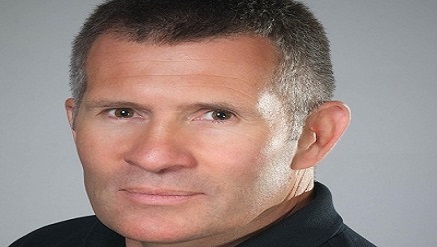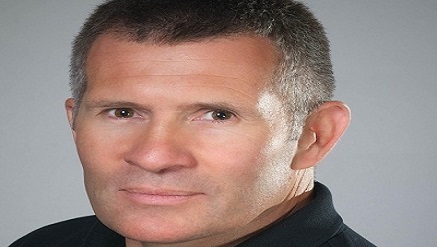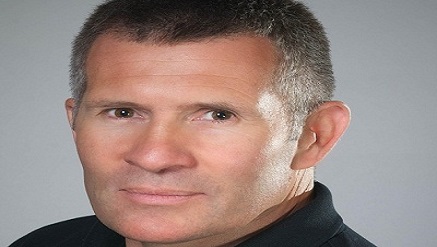News
Top ICT Predictions for 2013

As we move into a new year, we asked the top executives of five global ICT companies what they see as the three strongest industry trends in 2013.
Their answers are concise and all pointed to a promising yet potentially technology disruptive year.
“True mobility trend in the workplace”
1. True mobility trend. We are going through a radical shift in the way people work and use computers. Increasing availability and affordability of wireless broadband is giving the global workforce true mobility, for the first time in history.
Many of them will use mobile rugged computers for their everyday computing and communication needs, instead of traditional laptops.
2. A renewed focus on ‘total cost of ownership’ of mobile computers.
Higher productivity, increased labor costs and a strong trend towards true mobility in the work place are all factors that have put the spotlight firmly on ‘total costs of ownership’ for computers and devices.
Organizations will have to start spending more on durable and reliable mobile computers rather than looking for bargains, if they want to avoid losing valuable productive time.
3. The emergence of Android as a valid operating system choice for mobile devices for enterprises. Android has taken the smartphone market by storm since its inception and is now maturing into a real valid option for enterprises, and is challenging Microsoft’s market leadership.
Jerker Hellström, CEO, Handheld Group
Jerker Hellström is a pioneer and industry veteran in the mobile rugged computer industry. In both entrepreneurial and managerial positions, he has 25 years of experience from developing, designing, manufacturing and marketing rugged computers globally.
“Smarter mobile infrastructure”
1. Smarter mobile infrastructure. Mobile operators are being squeezed by decreasing revenues per user, and a seemingly insatiable demand by users for more data. To efficiently manage the rapidly growing increase in data traffic in their networks, mobile operators need to build and improve their infrastructure in a much smarter way.
2. A new focus on antennas for base stations. Base stations antennas, long regarded as a cheap commodity, will get a revival with so-called ultra high-efficiency antennas. They can achieve a higher signal strength, increase in area coverage, improved indoor penetration, increased traffic, improved data throughput and reduced production costs per call.
3. A quest to reduce signal wasteage. For the same reason, mobile operators will look for ways to deal with suboptimal transmission and to find solutions that do not “waste” the signal on areas outside their focus area, and that block all interference.
Einar Ahlström, CEO, Cellmax Technologies
CellMax Technologies develops and markets ultra-high efficiency base station antennas for mobile networks. It is one of Sweden and Europe’s fastest growing technology companies.
“Fixed-mobile divergence”
1. Fixed-mobile divergence is here to stay. Fixed-mobile convergence, a previously popular trend towards seamless connectivity between fixed and wireless telecommunications networks, will come to an end. Consumers and enterprises have started to display completely disparate behaviors, needs and payment patterns when compared to what can be offered over fixed and mobile access.
There is only one solution to this demand, and that is to give all consumers and enterprises access to fiber or vectoring. LTE and obsolete technologies will not cut it.
2. Sharing of networks. In order to meet the future demands of consumers and enterprises efficiently, service providers will start to more readily share the same networks, either because of the capital needed to invest in the equipment or because it suits local competition conditions and regulations.
2. Focus on advanced Operations Support Systems (OSS). It is not enough to lay fibre alone or upgrade to vectoring – an environment is also required in which multiple service providers can thrive and reach the customers simply and easily.
Advanced operations support systems are needed to provide support for automated service fulfilment and service assurance not only within an operator but more importantly between operators.
These three fundamental is the key for understanding the success of true broadband services today and in the future.
Torbjorn Sandberg, CEO, Netadmin Systems
Torbjörn Sandberg has more than 15 years of experience from leading positions in the data and telecom industry.
Netadmin Systems is the market leader in OSS systems in the Nordics.
“Green telecom trend”
Green telecom trend. Mobile operators will start making their operations more environmentally friendly.
Powering base stations in developing countries with dirty diesel fuel is not good for the brand – nor the bottom line.
– A quest to serve the “Next Billion” mobile customers. They are mainly in emerging markets, with low average revenue per user and non-existent or bad access to the grid, so focus will be on keeping operating expenses low., e.g. by powering base stations with energy efficient systems and renewables.
– The global data boom will force mobile operators to evaluate their business models. Focus will be on lower operating expenses and taking a step wise approach to investments.
Operators cannot easily raise prices for data or predict traffic flows and new services provided.
David King, CEO, Flexenclosure
David King is CEO of Flexenclosure, a specialist developer of intelligent power management systems and pre-fabricated data centres for the telecom industry.
Mr. King is an international executive with decade-long experience in C-level roles in high-tech companies in both Europe and the U.S.
“Mobile devices overtake desktops”
1. A shift to a device-driven and faster Internet. By 2014, mobile Internet usage is expected to exceed desktop Internet usage.
That means that in 2013 developers and marketers will be hard at work fine-tuning their mobile apps and websites to capitalize on this audience. Application testing tools will evolve to support any type of device with dynamic HTML versus device-specific code. Special protocols like WebSocket and SPDY will become mainstream.
2. Internet backup. Companies utilizing hybrid cloud solutions will realize that they need to have a reliable and redundant network connection to the Internet not only from their main headquarters but from every local branch of the office.
3. The ‘social’ DDoS attack. Social media has brought a new level of risk to IT departments as a new type of DDoS attack emerges.
Now, in addition to traditional hacking, websites need to be aware of social mediadriven “attacks” that can change traffic levels to 10 Gb/s, 100 Gb/s, or more from real users.
Regardless of whether the attack is a malicious hack or a Facebook post or organized tweet, very few enterprise infrastructures can handle this load.
Normal DDoS protection will not work. Organizations will safeguard themselves by ensuring their sites can absorb the load in a true cloud fashion (scaling to 10 or 100 times the load) and by having a well-organized and tested plan of action.
Sven Hammar, CEO, Apica
Apica is a leading provider of load testing and performance monitoring solutions that test, monitor and optimize cloud and mobile applications.
Peter Karaszi is an IT professional and writer
News
Mastercard Unveils First Office in Ghana

Mastercard has expanded its operations in West Africa by opening its first office in Ghana, in its capital Accra. According to the multinational payments network company, the expansion aims to bolster Ghana’s digital economy and support financial inclusion.

Mastercard says Ghana offers fertile ground for the company to enhance its geographical presence in West Africa, citing the country’s growth in key sectors like agriculture, mining and digital infrastructure.
In addition to the new office, Mastercard has partnered with several companies including Kalabash, KaiOS, Boost, Smile ID, Access Bank and Fidelity Bank to enhance cross-border payment solutions, empower local fintechs and enhance access to digital services for underserved communities.
“Our growth strategy for West Africa is ambitious, and establishing a formal presence here allows us to better serve the specific needs of our customers. We are eager to leverage our global expertise and innovative capabilities to introduce advanced payment technologies in this market,” commented Mark Elliott, division president for Africa at Mastercard.
For Folasade Femi-Lawal, country manager and area business head, West Africa, Mastercard, the expansion is about growing the local economy.
She says: “We are committed to attracting and nurturing top talent and fostering an ecosystem that aims to contribute positively to the local economy and technological advancement.”
News
Firms Seek Specialized Expertise to Combat AI Cyber Threats – Study Reveals

As concerns about the use of AI in cyberattacks increase, companies worldwide are racing to bolster their cybersecurity strategies, according to a Kaspersky survey.

In a new study the cybersecurity company revealed that 92% of IT and Information Security professionals surveyed in the Middle East, Turkiye and Africa (META) region expect the use of AI by malicious actors to escalate over the next two years.
This growing threat is prompting organisations to prioritise cyber defense expertise, with many turning to cybersecurity vendors for specialised support and training.
In its latest study titled “Cyber defense & AI: Are you ready to protect your organisation?” Kaspersky gathered insights from IT and Information Security professionals across SMEs and large enterprises. The findings underscore the urgent need to prepare for AI-driven cyberattacks.
To combat these evolving threats, companies place high value on cybersecurity expertise, with 94% of respondents in the META region highlighting the importance of growing internal expertise through training for in-house employees, and 93% underscoring the need for external expertise provided by cybersecurity vendors. This need spans sectors from retail to critical infrastructure, emphasising a universal demand for advanced threat protection.
To reinforce their cyber protection, organisations are actively integrating both internal and external expertise. Currently, 36% of companies surveyed in the META region are either implementing or planning to deploy external support to adapt to the evolving threat landscape, while 34% are doing the same through internal training initiatives. Additionally, 61% already use external cybersecurity expertise, and 62% have training programs in place, underscoring a dual approach in fortifying their protection.
Cybersecurity vendors’ expertise can come in various forms, from specialised professional services that help organisations deploy their protection solutions, to advanced expert centers that focus on specific security challenges.
One of these centers is the Kaspersky AI Technology Research Center. It brings together the company’s AI research and development efforts, to deepen the protective capabilities of cybersecurity solutions.
Vladislav Tushkanov, Group Manager at the Kaspersky AI Technology Research Center, says: “Our latest survey shows that businesses are acutely aware of the rising threat from AI-driven cyberattacks and are looking to reinforce their protection through comprehensive solutions, including the use of vendors’ extensive cybersecurity expertise.
The Kaspersky AI Technology Research Center plays a pivotal role by helping us leverage AI advancements to enhance our threat protection strategies and explore innovative ways of using AI in cybersecurity. It also enables us to address security concerns specific to AI itself, ensuring that businesses are prepared for the latest AI-driven threats.”
News
EFCC Dismantles Fake Hotel Review Syndicate, Arrests 105 in Crackdown

Economic and Financial Crimes Commission (EFCC) has dismantled a fake hotel review syndicate and arrested four Chinese nationals and 101 Nigerians for their roles in the elaborate internet fraud scheme.

Victims were allegedly first lured into rating hotels in exchange for small sums of money.
Eventually they would be encouraged to make bookings in any of the rated hotels for as much as $500.
They were told that the company would pay them back with chunky interest into a crypto wallet bearing their names.
However, the victims would in the end not be able to open the wallet.
EFCC announced that the suspects operated out of Naka Hall Plaza on Abutu Garba Street in Gudu, Abuja, where agents recovered 100 compact workstations.
Dele Oyewale, spokesman, EFCC, said the suspects used fake foreign identities to target unsuspecting victims, primarily U.K. residents.
Authorities said the criminal network was allegedly led by the Chinese nationals, who recruited and trained Nigerian youths with advanced technical skills to act as customer service representatives.
These representatives followed a predesigned script to deceive their victims online.
The operation follows a separate crackdown weeks earlier, in which 792 suspects — including 148 Chinese nationals — were arrested for involvement in cryptocurrency and romance scams.
The foreign nationals allegedly used corporate apartments disguised as business centers to train their Nigerian accomplices. These accomplices were reportedly taught to initiate romance and investment scams and use their own identities to carry out fraudulent activities.
The EFCC also highlighted a concerning trend of foreign nationals instructing Nigerians in internet-related crimes.

 Telecom2 days ago
Telecom2 days agoUSSD Dispute: FG May Blacklist 18 Banks Allegedly Owing Telcos N250Bn

 E-Financial2 days ago
E-Financial2 days agoNGX Warns Public of Fraudulent Impersonation by ‘Value Gain’

 E-Business2 days ago
E-Business2 days agoKaspersky Discovers New Scam Scheme Targeting Businesses on Social Media

 General News2 days ago
General News2 days agoEnterprise Development Fund Launched to Bridge Capital Access Gap

 News2 days ago
News2 days agoAfDB to Partner LAMATA to Expand Existing Rail System

 General News2 days ago
General News2 days agoUBA Rewards Customers with over N41m in Final Edition of Legacy Promo

 E-Business2 days ago
E-Business2 days agoNIMC Trains 388 Personnel to Boost NIN Enrolment

 Broadcasting2 days ago
Broadcasting2 days agoNLC Shuts Lagos TV, Radio Stations over non-Implementation of N85,000 Minimum Wage






















